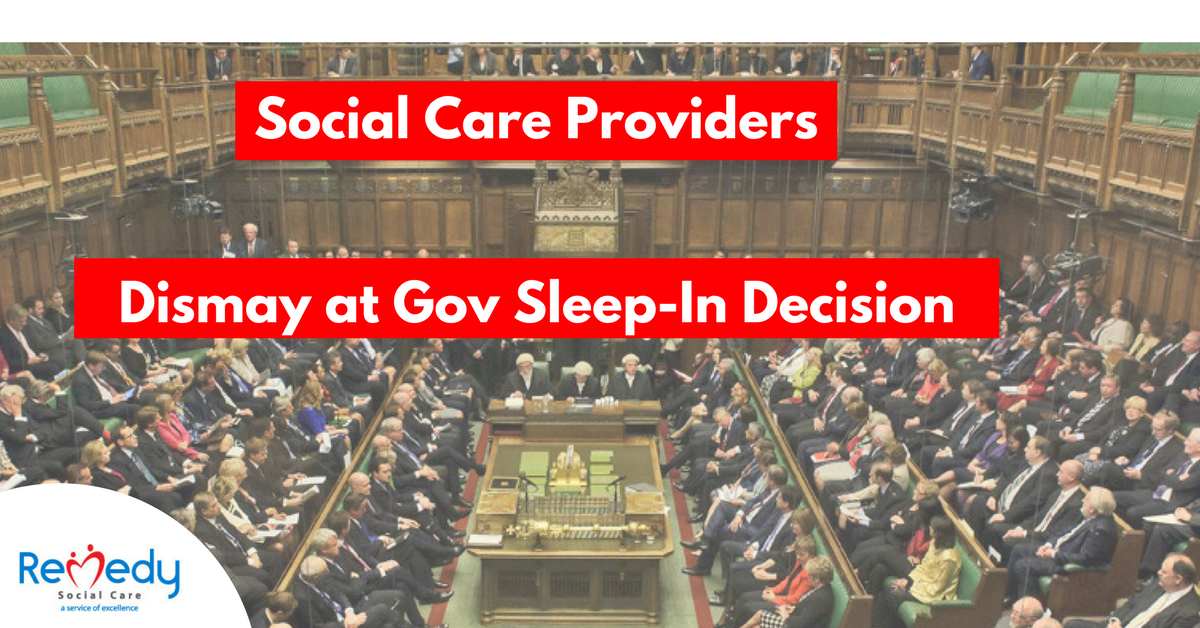Connecting linkedin

Remedy Social Care | Social Care providers left dismayed by government sleep-in shift decision.
A sector has been given just 15 months to meet a back pay bill of over £400m and warns that there will be mass closures should the government not intervene.
In an announcement on Wednesday, the government said that it would give care providers just 15 months to compensate all staff who were underpaid for their sleep-in shifts. Sleep-in shifts require carers to stay overnight in care facilities in case of emergencies.
Carers were previously paid a flat rate for the shifts, but after a recent ruling they are now entitled to an hourly minimum wage as well as compensation for six years of back pay. This is cost care providers are expected to bear but many feel it will lead to closures.
It has been estimated that the learning disabilities sector alone will now face a cost of some £400m, while children’s homes may face a bill ranging from £40,000 to a whopping £2,000,000.
It is a bill many organisations say will bankrupt them if the Government does not alter its decision.
Derek Lewis of Mencap has argued that “Having to pay that amount would drive medium to small providers out of business,”
Under the government’s current solution to the problem, care providers will opt into a compliance scheme which will give 15 months and the support of HMRC to identify and pay what they now owe workers.
The government has argued that the scheme has “been designed to help ensure workers are paid what they are owed, while also maintaining important services for people who access social care”.
But providers have criticised this and have urged the government to commit to financial help with the bill.
In a statement responding to the scheme, Mr Lewis said that it only amounted to the “promise of further delay”, with “no commitment, even in principle, to accept responsibility for a liability created by Government changing the rules.”
“Today’s announcement may help HMRC understand the extent of the liabilities for back pay but it completely fails to give any reassurance to people with a learning disability that their homes and care are secure and to carers that their jobs are not under threat,” he said.
It has been estimated that a quarter of the 2,000 specialist independent children’s homes in the U.K could close if forced to meet the cost of back pay.
Jonathan Stanley, the chief executive of the Independent Children’s Homes Association, said the cost would be the “final nail in the coffin” for providers who had not received funding increases from local authorities for many years.
“Without urgent Government assistance, the residential child care sector faces profound change and one of the most important care options for vulnerable children will be lost forever,” he said.
